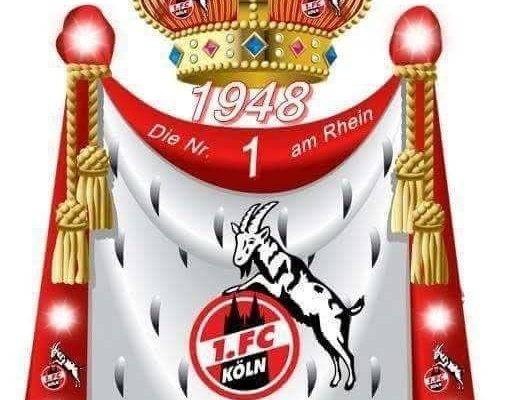Unfortunately, it wasn’t enough. In football, the difference between success and disappointment often lies in just a few minutes, a handful of details that slip out of control, and that was precisely the case in this game. Those four or five minutes at the end of the first half ended up deciding the outcome, costing valuable points and leaving both players and supporters with the feeling of what might have been. For the majority of the match, the team stood on eye level with the opposition, playing with control, with a structure that looked solid, and with phases of football that carried confidence. Yet football is merciless, and it does not reward control alone; it punishes lapses, and those brief lapses made all the difference.
The match began in a way that inspired optimism. From the opening whistle, there was an energy about the performance. The defensive line was well-coordinated, the midfield transitions worked with purpose, and offensively there was the right amount of intent. Against a team of equal quality, the players showed no fear. They pressed when the opportunities arose, they dropped back when needed, and the balance between defense and attack looked correct for most of the first half. But football’s brutal truth is that games are not remembered for the general balance, but for those key moments where concentration slips or the opposition finds a way through.
In those closing minutes of the first half, the opposition seized their moment. Perhaps it was fatigue creeping in, perhaps a lapse in communication, or simply the cruel efficiency of an opponent that needed only half a chance to strike. The fact remains: a game under control turned in a flash. Goals conceded at the worst possible time—just before the interval—cut deeply into the team’s rhythm. It is one thing to concede early and have the rest of the game to respond; it is another entirely to be hit just before heading down the tunnel. The psychological blow is heavy. Players enter the dressing room with their heads clouded, coaches must balance encouragement with critique, and fans feel the sting of frustration even as they clap the team back inside.
And yet, despite that setback, the second half was one of defiance. There was no collapse, no surrender. Instead, the team regrouped, tightened their lines, and fought for every ball. Eye to eye once more with their opponent, they dictated phases of play, regained confidence, and showed that the goals conceded did not break their spirit. This is where character matters. Too often teams crumble when momentum turns against them, but here there was no such collapse. Instead, the boys demonstrated that they are capable of controlling matches, capable of responding under pressure, and capable of standing tall even after a blow.
Football supporters know these moments all too well: the familiar mixture of pride and frustration. Pride in seeing a team battle, play with passion, and never look inferior. Frustration because results are ultimately measured in points, and pride does not move the table upward. Yet, it is in performances like this that the foundation is built for what comes next. A loss or a draw might sting today, but the lessons and the confidence from playing at eye level with a strong opponent can become the fuel for victory next weekend. And next weekend, the chance is clear: Stuttgart.
This match against Stuttgart now carries additional weight. It is not merely the next fixture; it is an opportunity for redemption, for points dropped today to be claimed with determination next Sunday. Stuttgart are not an opponent to underestimate, but they are not invincible either. What matters is that the boys bring the same control, the same structure, but combine it with a sharper edge. Moments must be seized, lapses avoided. A single match can never define a season, but a response can define the mentality of a squad.
When reflecting on this match, the positives should not be overlooked. The defensive coordination in long phases, the midfield balance, and the courage in transition showed that the work on the training ground is paying off. The players trusted one another, moved with understanding, and created opportunities. While the final score may not have reflected the balance, anyone watching could see that this was not a team outclassed. It was, instead, a match decided by details. That should give both the squad and the supporters confidence. If performances remain at this level, points will come.
Still, the disappointment lingers. Four or five minutes is all it took to shift the narrative. In football analysis, we often speak of “game management,” and it was precisely there where the cracks appeared. To control the rhythm until halftime, to keep focus until the whistle, is vital. A single lapse can undo 40 minutes of good work, and in this case, it undid nearly a half of balance. The task for the coaching staff is clear: to drill into the players that control must last until the very last second of each half. Concentration is not negotiable.
Looking ahead, there is also an emotional challenge. Players must not allow this disappointment to turn into doubt. Supporters must not let frustration eclipse their support. Football seasons are long, shaped by ups and downs, and resilience is as important as tactics. The reaction to this setback is what will define the weeks ahead. If the squad approaches Stuttgart with renewed hunger, with lessons learned from today, then this match may be remembered not for the points lost, but for the character it built.
The truth is, the boys did a good game. This cannot be ignored. They played with conviction, with balance, and with courage. They showed that they belong on this stage, that they can compete against anyone when fully focused. The applause from supporters at the final whistle, even amid disappointment, was a recognition of effort. Football fans are passionate, but they are not blind; they can see when a team plays with heart. That heart was visible today, and it must remain visible in the matches to come.
In the long arc of a season, there will be moments to celebrate and moments to regret. Today falls into the latter, but it is far from a disaster. If the squad takes the lessons, sharpens their focus, and carries the same control into the coming games, the narrative can quickly shift. Stuttgart offers the first step in rewriting the story. Each game is an opportunity, and while points slipped away today, they can be claimed again next week.
Football is not just about what happens on the pitch, but also about how teams, players, and supporters respond to challenges. This is one such challenge. To have control, to play at eye level, and still leave with disappointment is painful—but it is also a sign that this team is on the right path. With determination, with resilience, and with the same fight shown today, the points will come. And when they do, perhaps we will look back on this match not as a failure, but as the spark that lit a stronger flame.


